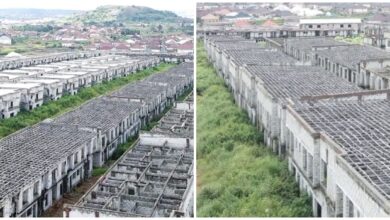Stakeholders Call For Joint Action To Address Bullying In Nigerian Schools

Stakeholders in Nigeria’s education sector have emphasized the need for collaboration between school management and Parent-Teacher Associations (PTAs) to tackle the growing issue of bullying in schools. Their comments come in response to recent reports of bullying in secondary schools, particularly a disturbing incident at Federal Government College, Enugu.
The Role of Schools and Parents
Dr. Olubukola Dosunmu, a former President of the National Association of Proprietors of Private Schools (FCT Chapter), highlighted the need for schools to implement strict measures to deter bullying.
“Bullying is a social problem that extends beyond schools. Schools and PTAs must adopt stringent measures to address it effectively,” she stated.
Dosunmu also pointed to the influence of home environments, noting that children often replicate behaviors witnessed at home. She urged parents to take responsibility for raising morally upright children, emphasizing that no school policy can succeed without parental involvement.
“Many of these habits start from home. If children witness violence or abuse between their parents, it reflects in their behavior outside,” she added.
She further called on religious and social organizations to promote values like tolerance and patience, which can shape children’s character positively.
Psychological and Academic Impacts
Psychologist Mrs. Chidiebere Nwankwo warned about the detrimental effects of bullying, stating that victims often suffer emotional, intellectual, physical, and academic setbacks.
“Bullying can severely impact a child’s overall wellbeing. Effective prevention programs can benefit not just students but also improve the overall school environment,” Nwankwo explained.
She urged regulatory agencies to develop comprehensive anti-bullying strategies across all educational institutions in the country.
Addressing Institutional Shortcomings
Parents, too, weighed in on the issue. Mr. Segun Aloba criticized schools for often protecting bullies to avoid losing enrolments, a practice he believes perpetuates the problem.
“Schools hide these issues instead of addressing them head-on. This lack of transparency allows bullying to persist,” he lamented.
Government’s Response
The Minister of Education, Dr. Tunji Alausa, condemned the bullying incident at the unity college, describing it as a violation of students’ rights and dignity. Following the release of a distressing video, he ordered the suspension of the perpetrators to serve as a deterrent.
Dr. Alausa reassured the public of the ministry’s commitment to creating a safe learning environment. “We have taken immediate steps, including enhanced security with law enforcement and a review of school safety protocols,” he said.
A Call for Collective Action
The stakeholders unanimously agreed that eradicating bullying requires a collective effort from parents, schools, religious organizations, and the government. A culture of transparency, accountability, and moral education is crucial to ensuring the safety and wellbeing of students in Nigerian schools.



